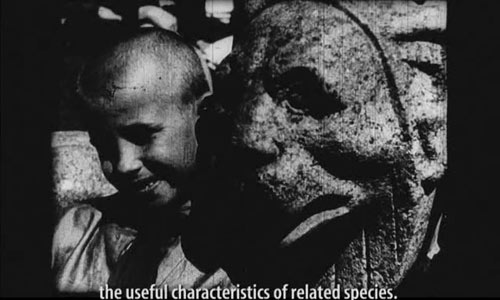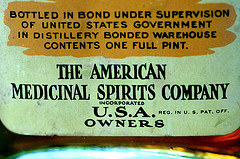(If you’re interested in listening to the radio series mentioned in this post, you can visit the following link, or click the slideshow above.:
I’ve never commented publicly on the WTO shutdown in 1999. Late-night nostalgizing with trusted, drunken comrades does not count, and neither do broad assessments of political and tactical implications. I mean to say that I have never spoken in a public forum about my participation in the events, that is, about my personal experiences or analyses thereof. And I’m not starting now.
This year, November 30th will mark the 10 – year anniversary of another Novermber 30th, the one affectionately known as N30, or the Battle in Seattle. People are talking about that distant day, and about what it was like way-back-when-we-were, and about what has changed in the intervening years. Local, and even national, media outlets are offering competing commemorations, 3-part-series, re-interviews, 20/20-hindsight reckonings. Most of them are re-broadcasting the old archived recordings they made at the time. We knew then that the mainstream coverage sucked, and guess what? It hasn’t gotten better with age. They’re still trotting out the same tired tropes: property damage = violence, police “gone wild” (as though the behaviors they exhibited were somehow exceoptional in quality rather than just scale.) And now these reporters have that extra sheen of smugness provided by retrospection: ‘where are all those radicals NOW?’ they sneer, ‘guess you’ve all settled down and accepted How Things Are.’
Earlier this week, I was asked by a radio reporter to provide an interview for her segment of the series ‘WTO: Ten Years Later.’ Her piece, airing tomorrow, means to probe the changes in protesting and policing that have occurred since, and because of, the Battle in Seattle. When I initially spoke with Ms. Reporter on the phone, I got the impression that she was looking for commentary and analysis on police and activist tactics. She seemed (don’t they all?) to be well-informed and reasonable. She told me that she would be interviewing the “leader” of the Ruckus Society, as well as former police chief Norm Stamper, and possibly former mayor Paul Schell. We talked about meeting in a coffee shop or in my office, but she suggested it would be easiest if I came to her studio. (She suggested this without mentioning that she wanted me on mic, in the studio, being recorded. Not that it would have been surprising to learn, just that the omission later came to seem like an evasion.) I went to see her the following morning.
That night, I studied. I wanted to refresh my thinking on the subject, and to respond to the most recent analyses available. I read more than 200 pages of documents: academic papers, a RAND Corporation report, a few book chapters on netwars and the spread of non-hierarchical organizations, and a number of essays on the philosophical problems of defining terrorism and the state of exception. I wanted to be ready. I treated the occasion as I would a conference presentation or a debate.
I should have saved my time. We were barely sitting down for two minutes before it became painfully clear that the interview would be a farce. I came as an analyst, fancying myself an expert. The reporter was looking for human interest. She had no notes, no prepared questions, no provocative assertions to debate. She was pleased to learn that I had been a wee lass of 21 years when I started organizing for the WTO ministerial, and her narrative quickly emerged: young (read: naive) woman (read: naive) gets swept up in the romance of revolt, rides the whirlwind of events surrounding the WTO shutdown, tastes teargas, resolves to Do Good Things ForEVER, and promptly settles down to a work-within-the-system variety of comfortable bourgeois liberalism, thereby continuing her ‘activism’ in a sensible, constructive, adult way. She sometimes shakes her head in a twee and rueful way at her radical youth, but is firmly untroubled by her decision to be a respectable ‘public interest’ attorney.
Gag, right? A sampling of questions:
1. “So, are all your friends grown up and working for major corporations now?”
2. “I understand [from a third party] that you’re attending law school. Do you consider your legal work to be an extension of your activism?”
3. “Would you consider yourself a protester today?”
My (unspoken, outraged) answers:
1: “No, bitch, they’re imprisoned as terrorists, getting their doors kicked in by the FBI, hiding in exile outside of their homelands, living in fear of grand juries, impoverished, crippled, divided, AND STILL FUCKING FIGHTING.”
2. “I’m going to law school for one reason: to increase my power. I’ve never been an ‘activist.’ “
3. “I also never considered myself a protester. You don’t get it, do you? If the WTO shutdown was a PROTEST, you wouldn’t even have mentioned it on your radio station, and you certainly wouldn’t be thinking about it ten years after the fact. Protests are also known as ‘rallies’ for a reason: they are essentially pep rallies. They provide people within a movement with the temporary euphoria of apparent camaraderie, some slight increase of visibility, and a consolidation of symbolism. A protest, in the contemporary arena of spectacle, is a theatrical event that serves to increase momentum and fortify group identification. It does not change the enemy. The WTO shutdown was not a protest, it was a mass action with a particular goal: to SHUT DOWN the ministerial. And it worked. So, no, thanks for asking, I don’t consider myself a protester, now or then.”
Under this barrage of banality, my rage simmering unexpressed, I had the acute awareness that anything I said could be snipped apart and stitched back together in completely distorted form. I stonewalled the reporter, telling her repeatedly that I was not interested in discussing my personal history. It became very clear, during the 30 minutes or so I spent at the radio station, that I had failed to evaluate my own motivations for granting an interview in the first place. As I sat there, I realized that my participation was sheer ego gratification. I had been flattered by the attentions of the reporter, by her insinuation that I was a credible witness, or even an unsung expert. The problem is, I don’t actually have any authority from which to make statements about the WTO, policing, the militarized state, any of it. In her eyes, I have no authority at all. If I had wanted to establish credibility, I would have had to reveal facts and stories that I don’t wish to reveal. It was a stalemate. As the reporter became angrier and angrier at my refusal to divulge any “personal anecdotes” from N30, or to frame my political engagement in the context of a come-to-Jesus redemption story, or to reveal anything at all about my “emotions,” “life lessons,” or “inspiring thoughts,” she got nastier. Eventually, I was shown the door, and it was locked behind me with a resounding click.
Walking away, I was angry with myself for giving in to the temptation. I shouldn’t have answered her call; I shouldn’t have appeared in the studio; I shouldn’t have consented to the manipulation that followed. As I walked further and faster, I became angry with the reporter, as well, for misrepresenting her purpose, for underestimating my clan, for belittling our efforts. But, as always, walking helped to clear my head. And I remembered some basic principles that were very clearly articulated during the heady days of 1999.
We don’t talk to the media. We don’t give interviews; we don’t appear on television. When reporters call, we hang up. When reporters attend our public meetings, we take our business into private session. When reporters attend our private meetings, we eject them. It was simple then, and it’s simple now: reporters are not your friends. Whatever mild sympathies they may feel for your ethical standpoint, they will never put those sympathies above the demands of their medium, their jobs, their purportedly ‘neutral’ position. If you are being interviewed, you are being manipulated.
That’s why we made our own media. That’s why there are Indymedia centers, even today, ten years later, all across the globe. That’s why we broadcast pirate radio, and letterpressed broadsheets, and photocopied our own books, and hijacked newspaper boxes to distribute satirical editions of the local rags. That’s why we communicated through graffiti and shortwave and hand signals and face-to-face whispers.
I understand that there are tactically legitimate moments to engage with, and use, the mainstream media. But let’s not forget: those engagements must be rigorously proscribed and carefully managed. And they must be viewed instrumentally, as means to an end, and embarked upon only when the potential return outweighs the inherent risk. Don’t talk to reporters because you want to Tell Your Story or Be Heard. Save your stories and your authentic voices for your comrades and allies – your enemies don’t deserve them. They’re only listening so they can hurt you later.






